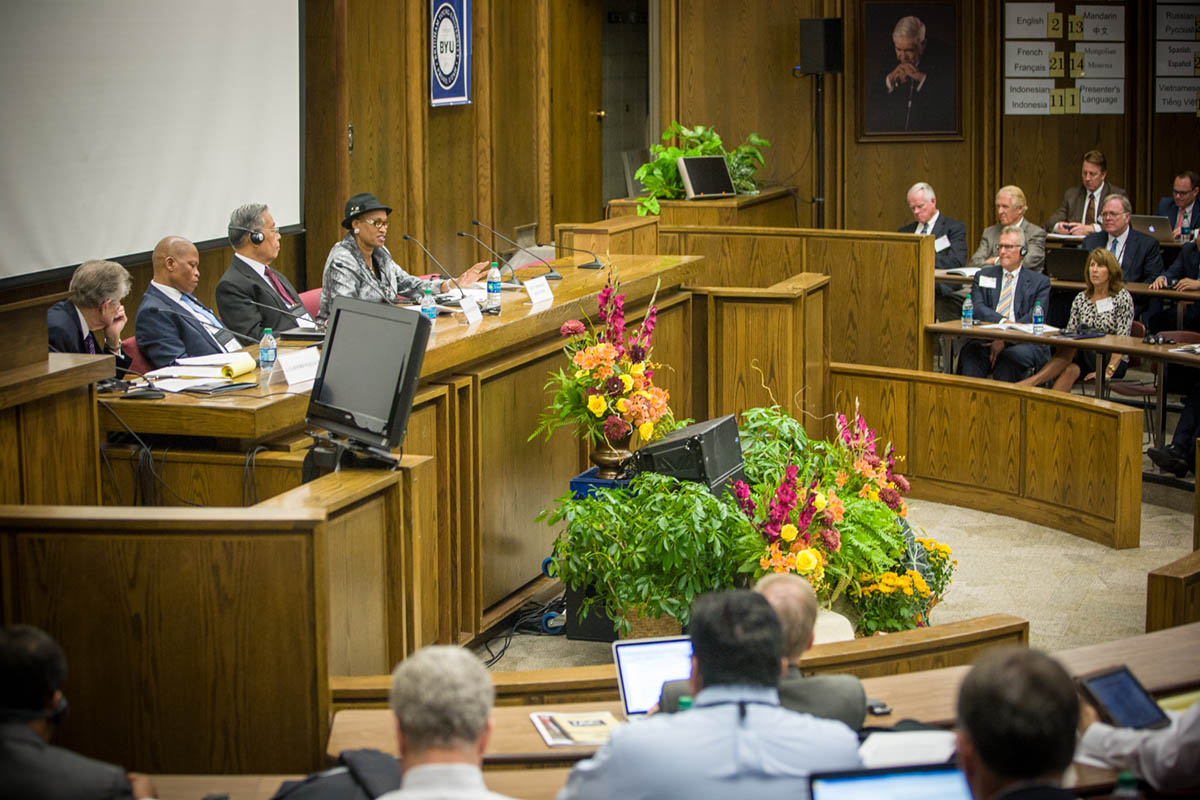Symposium 2015 Second Plenary Session: Religion, Rule of Law, and Social Stability

Reported by Annalee Hickman Moser
In the Symposium’s Second Plenary Session, entitled Religion, Rule of Law, and Social Stability, J. Clifford Wallace, Chief Judge Emeritus of the U.S. Court of Appeals for the Ninth Circuit, moderated the question and answer session with three expert judges, Mogoeng Mogoeng, from South Africa, Hilario Davide, Jr., from the Philippines, and Helen Moronkeji Ogunwumiju, from Nigeria. The panel’s purpose was to describe the interaction of the three values—religion, rule of law, and social stability—from the perspective of each judge. The following is a summary of each judge’s perspective, aggregated from the range of questions.
Mogoeng Mogoeng, Chief Justice of the Constitutional Court of South Africa, described that while it has not always been this way, religion has since found its place in the law in South Africa and freedom of religion is provided for in the Constitution; but whatever influence religion plays in the enactment of laws, it will always be judged against the bill of rights. He explained South Africa’s strong desire to incorporate every piece of international law and the robustness of its Constitution. He summarized South Africa’s religious freedom history saying that religion and the law in his country are now so strong that social stability has been enjoyed from the time it became a constitutional democracy until now, notwithstanding the challenges that it, like all others, have. He recommended that other countries can treat religious freedom the way South Africa does by looking for what it will take internally to bring an end to their current situation instead of outsiders coming in and fixing it for them.
Hilario Davide, Jr., former Permanent Representative of the Philippines to the UN and retired Chief Justice of the Supreme Court of the Philippines, overviewed the Philippines’ constitution as pro-family, pro-marriage, pro-religious freedom, and pro-country, and stated that its constitution explicitly mentions “love.” He explained that the rule of law is reinforced by religion itself because the proper application of the rule of law must have some constitutional learning. He believes that his country’s laws shape and inform social developments, increasing its social stability. He concluded by updating the attendees about the current religious freedom cases before the Philippines’ courts, including a same-sex marriage petition that is working its way up to the highest court.
Helen Moronkeji Ogunwumiju, Justice of the Nigeria Court of Appeals, presented the basics about the Nigerian constitution and the state of religious freedom there. The constitution does not explicitly state that the country is secular, but the Courts have always held that Nigeria is a country that has no specific religion. Religions have also always been a part of the law since most of its laws are derived from religion. Both Christians and Muslims are protected by the Constitution, and there is hardly any discrimination of either religion in Nigeria.